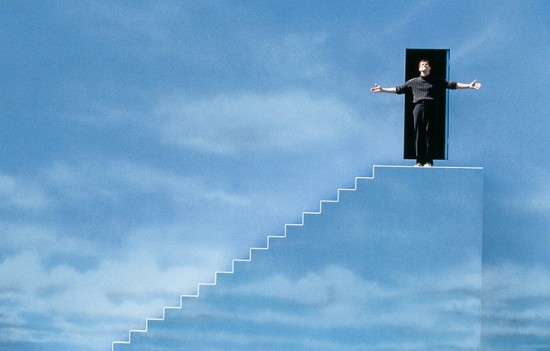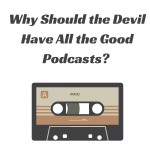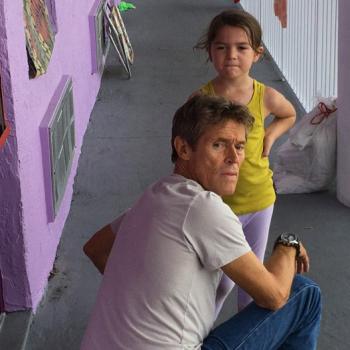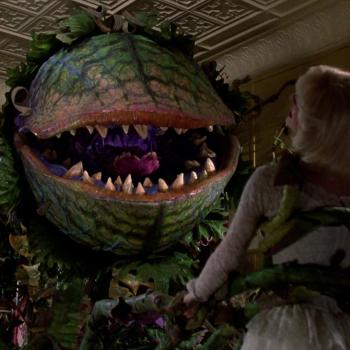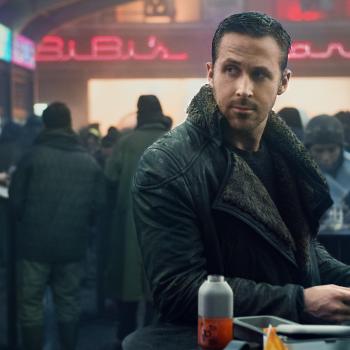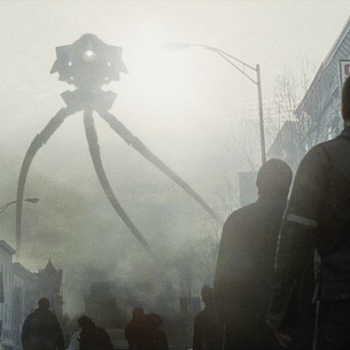The insidiousness of safety
Love him. Protect him.
That’s phrase appears on the shirts of “Truman Show” cast members. The entire defense given to why the show’s producers conduct the program and imprison a human being is that they’re protecting him from a harsh world. When a protester objects to what Christof is doing, calling it “sick,” the creator lashes out:
I have given Truman the chance to lead a normal life. The world, the place you live in…is the sick place.
Why do we stifle our hearts? Why do we cling to less-wild lovers who pacify us with busyness, functionality and distractions? Why do we settle for comfortable living, insulating ourselves with stuff instead of pursing our passions? Why, when Truman declares “I’m being spontaneous” does a part of us concede that perhaps he needs serious help?
Because to live unpredictably can hurt. Risk taking is, by nature, unsafe. Passion doesn’t shield us from wounds — our own experience has told us that it causes them. In “The Sacred Romance,” Curtis and Eldredge discuss the moments when our childlike idealism turns into cynicism and distrust, likening them to arrows that have unexpectedly lodged themselves in our psyche, each one delivering a message — often false — about our identities and what we’re capable of. Those are the messages that tell us we’re not good enough, we can’t cut it, we’re unworthy of love. And so, wounded by life and fearing another arrow to our hearts, we retreat. Creativity gets replaced with menial work. Intimacy is replaced by functional relationships where people bite their tongues and risk offending. Adventure is replaced by comfort, our desire to explore quenched by the way we insulate ourselves with stuff. Faith — that once bright, burning passion in our souls — is replaced by religion where we try to maintain our place on a certain grid and check off our good deeds on a chart.
We cling to our lovers because we’ve been wounded — because we’ve tried to live free and been harmed. Truman, on the other hand, has always been surrounded by things that pacify his curiosity and stifle his desire. He’s in a world constructed to keep him predictable, passionless and tame. He’s been born into it — we run to it.
But so much of our retreat is prompted by the same promises that keep Truman in line. Our advertising is centered around the concept that buying a certain product or living a certain lifestyle will increase our confidence, inspire our friends to stick around, and help us obtain a life of comfort and security. True, we had to run to this world — but it was constructed and waiting for us.
Anyone who’s accomplished anything knows safety is overrated. We all die in the end anyway — the question we have to face is whether it’s a slow death, suffocated by comfort and distraction, or a noble one on the field of desire. Those who have loved greatly, composed great works or changed the world know security is one of the first things you have to sacrifice to accomplish anything. It’s not so much that we make a conscious decision to take the risk — it’s that our hearts propel us into it, throwing caution to the wind to achieve our dreams and become who we were meant to be.
The final minutes of “The Truman Show” are deeply moving. No matter how many times I’ve seen the film, I’m left with a lump in my throat in those final sequences. Truman, knowing that the world he’s grown up in is a trap, rushes headlong to find the truth. He commandeers a boat and heads out on the ocean. First trying to control him and push him back, Christof has the crew ramp up the storms. When Truman continues to press on, Christof decides that if he can’t control his “son,” he’ll drown him. But Truman keeps going, sailing to what is literally the end of his world. And when his boat crashes into a wall, Truman’s desire keeps driving him forward, beating it with his fists until Christof addresses him directly. He can’t control him. He can’t kill him. But he can appeal to his sense of self-preservation one last time, telling him:
Truman, there’s no more truth out there than in the world I created for you — the same lies and deceit. But in my world, you have nothing to fear.
Truman decides to live with the risk. He utters his catchphrase, takes a bow and walks right into a new world.
I realize that these final moments are packed with spiritual symbolism. The character of Christof can be seen either as a Christ figure who stands in for the way religion tries to control us, or as an “Off-Christ” (anti-Christ) who tries to keep Truman from understanding the truth. The spiritual allegory isn’t hard to miss — he’s literally speaking from inside the moon, and when Truman asks who’s there, he tells him he knows Truman better than he knows himself and has been watching him all his life. And, of course, there’s Truman’s literal ascent off the ground and into the sky at the film’s end — he escapes via a stairway to heaven, of all things…and his pose before he bows is so crucifixion-like, you can’t miss it.
Those are fun connections to think about, but I still walk away moved not by the spiritual allegory but the very existential dilemma we’ve just watched. Carrey, as I said, is fantastic — by the end of the film, Truman has evolved into a curious, soul-searcher who’s awakened for the first time in years. More than the critiques of reality TV or the ethical questions posed, I’m moved by the all-too relatable story of a man who woke up to find himself trapped in a comfortable life, haunted by the feeling that there must be something more.
Nineteen years later, “The Truman Show” still has power because of its human story. Like Truman, I’m surprised by the voices that still whisper to me. I wonder about some of the less-wild lovers I’ve let seduce and distract me, pacifying me from my desires and dreams. I wonder if I can throw caution to the wind, sail to the end of my world and see what’s on the other side. Like Truman, we’re all searching. Like the rest of the world, we want to know how it all ends.
Note: This is an updated and edited version of a story I wrote for a previous blog.

